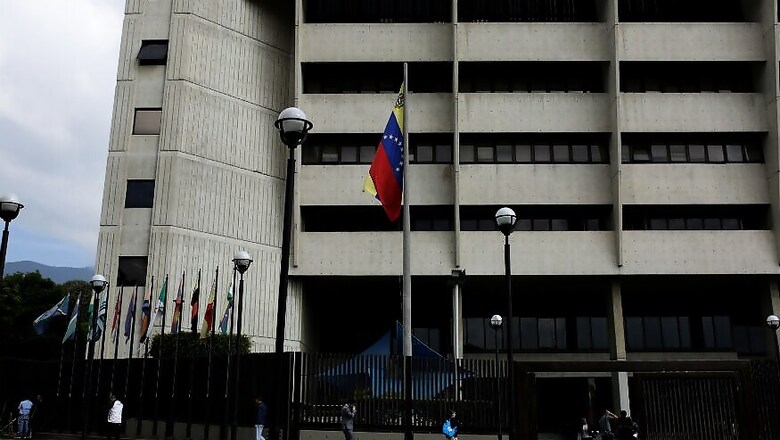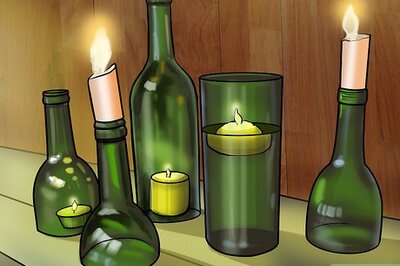
views
Caracas: Venezuela's Supreme Court took over legislative powers Thursday from the opposition-majority National Assembly, a dramatic tightening of leftist President Nicolas Maduro and his allies' grip amid a devastating economic crisis.
The opposition attacked what it called a "fraudulent court" packed with Maduro loyalists bent on keeping him in power in the South American oil giant, where a three-year recession has caused food shortages, riots and an epidemic of violent crime.
The high court, whose judges have staunchly backed Maduro in a power struggle with the legislature, made the decision late Wednesday night, citing an earlier ruling that the opposition majority was in contempt of court.
"As long as the National Assembly's contempt of court and invalidity persist, parliamentary powers shall be exercised directly by (the Supreme Court's) constitutional chamber or by the body it stipulates to safeguard the rule of law," it said.
The court ruled in August 2016 that the National Assembly leadership was in contempt for swearing in three lawmakers who were suspended over alleged electoral fraud. The opposition condemns the fraud charges as a trumped-up bid to curb its power.
The main opposition coalition, the Democratic Unity Roundtable (MUD), won a landslide in legislative elections in December 2015 with a promise to oust Maduro.
That forced the president and his allies in the United Socialist Party of Venezuela (PSUV) to share power for the first time since its founder, Hugo Chavez, surged to power in 1999.
But the Supreme Court scuttled the opposition's powerful two-thirds majority when it barred the three investigated lawmakers from taking their seats.
Since then, the court has overturned every law passed by the legislature.
'We were elected'
Opposition lawmaker Henry Ramos Allup bitterly condemned the ruling.
"This is a fraudulent court whose interpretations of the constitution violate the document itself," he said in a radio interview.
"We must continue... doing our jobs despite the risk, because no one person gave us our titles as lawmakers. We were elected."
The ruling came a day after the high court stripped lawmakers of their legislative immunity, clearing the way for them to face prosecution.
Maduro has accused opposition lawmakers of treason for asking the Organization of American States to consider suspending Venezuela for violating democratic norms.
Treason carries a prison sentence of up to 30 years in Venezuela.
Oil deals at stake
The court's sweeping expansion of its own powers came midway through a ruling on a technical matter involving the law governing Venezuela's state-run oil industry.
Under the law, the government needs the legislature's approval to launch joint ventures with private oil companies.
The court ruled that the National Assembly's "legislative omission" left it no choice but to take over congressional powers itself.
The stakes are potentially enormous for the struggling state oil company, PDVSA, where debts have soared and production has plunged amid a sharp decline in global oil prices since 2014.
Venezuela has the world's largest oil reserves, but the price collapse has laid bare its overwhelming dependence on its chief export.
Lacking the oil dollars it once used to import nearly everything else, the country has been hit by severe shortages of food, medicine and basic goods like deodorant and toilet paper.
In a sign of how desperate the situation has become, Caracas and several other cities have recently been hit by shortages of the one thing Venezuela was supposed to have in abundance: gasoline.



















Comments
0 comment